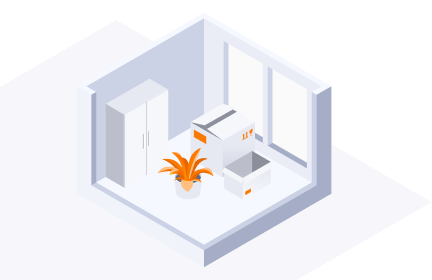Land for sale in Rustavi

Land for sale in Rustavi
Rustavi is one of the most promising cities near Tbilisi for land buyers. The area is seeing steady growth in both residential and commercial development, with infrastructure improvements and increasing interest from local and international investors. Its close proximity to the capital, access to major highways, and more affordable land prices make Rustavi an attractive choice for construction or long-term investment.
The market offers a variety of plots, including land for residential housing, commercial projects, agricultural use, or logistics facilities. You can find everything from small plots within city limits to large parcels on the outskirts or in industrial zones.
Land prices in Rustavi depend on a number of factors, including location, size, zoning, and distance to the city center. On Korter.ge, you can easily explore available listings, filter by price, size, and type, view photos and map locations, and contact property owners directly.
What affects the price of land?
Buying land in Rustavi is a smart investment, but prices can vary widely depending on specific conditions. Understanding the key factors that influence value will help you make an informed decision — whether you're planning to build, invest, or resell.
- Location. Land closer to central areas or to Tbilisi generally comes at a premium. Convenient access adds significant value per square meter.
- Zoning and permitted use. Land zoned for residential or commercial development tends to cost more than agricultural plots. Zoning defines what you’re legally allowed to build on the land.
- Utilities and infrastructure. Plots with access to electricity, water, gas, and sewage are more expensive — but also more construction-ready. Lack of utilities means extra upfront costs.
- Plot size. Larger parcels may be cheaper per square meter, but medium-sized lots are usually more practical for private construction.
- Topography and soil conditions. Flat, stable land is easier and more cost-effective to build on. Hilly or unstable terrain may require additional site preparation.
- Access to roads and public transport. Land near major roads or public transportation hubs commands a higher price. Good access is essential for both residential and commercial projects.
- Surrounding infrastructure. The presence of schools, shops, healthcare, and other services nearby increases land value. Well-developed areas tend to be more attractive to buyers.
- Legal status. Plots with clean ownership records and no legal disputes are valued higher. Always verify that documents are in order before proceeding.
- Market demand. Areas with active construction or growing investor interest typically see higher land prices. Popular locations tend to appreciate faster over time.
What to look out for before buying a plot of land
Buying land is a big decision — and one that requires careful research. Even if a property seems like a great deal at first glance, it’s crucial to verify its legal status, zoning, and development potential before you commit. Here are the key things every buyer should check before signing a deal.
- Legal ownership. Make sure the seller is the official and sole owner of the land. Ask for documentation and confirm there are no disputes or shared claims on the property.
- Zoning and permitted use. Land may be zoned for residential, commercial, agricultural, or mixed use. This determines what you can legally build and whether the plot fits your goals.
- Cadastral registration. The plot should be officially registered in the national cadastre. This ensures its legal existence, boundaries, and eligibility for construction.
- Liens, debts, or legal issues. Check if the property is under mortgage, involved in court proceedings, or has any legal restrictions. Such issues can delay registration or even block the sale entirely.
- Utility access. Find out if the land is connected to electricity, gas, water, and sewage. If not, factor in the cost and feasibility of bringing utilities to the site.
- Boundaries and surveys. Make sure the plot is properly surveyed and that its borders are clearly marked. This will help avoid future disputes with neighbors.
- Local building codes and restrictions. Investigate any limits on building height, construction type, setbacks, or density. These rules can significantly impact your development plans.
- Topography and soil conditions. A flat, stable plot is much easier and cheaper to build on. Sloped land or poor soil may require grading, reinforcement, or additional engineering work.
Doing proper due diligence before buying a land plot can save you time, money, and headaches down the road. A smart investment starts with the right questions — so take your time, ask everything you need, and don’t skip the fine print.